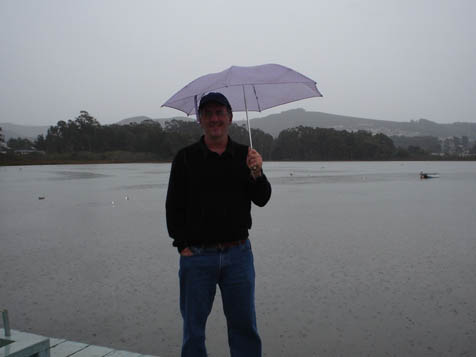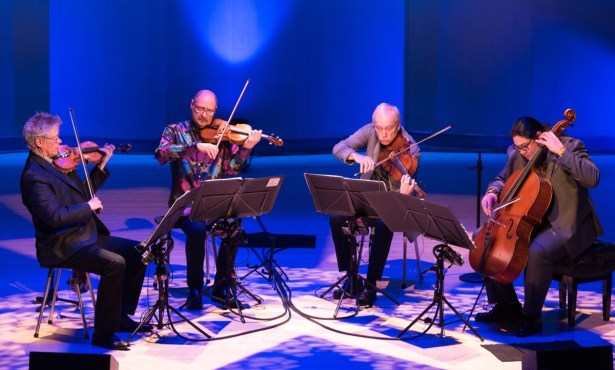Paul Portuges on The Body Electric Journal and Cin(e)-Poetry

Driving to meet Paul Portuges on a cool Sunday afternoon, I noticed a fan of birds opening wide, then closing, and taking off again, and thought-a metaphor for Portuges’s words in his new book of poetry, The Body Electric Journal (Plain View Press, 2007). The image pleased him, he said, as we sat down to cups of Imperial Green tea, explaining that the work was actually styled after the Japanese haibun.

Basho was one of the early writers of this form, a combination of highly descriptive poetic prose capturing a scene, journey, or special moment, with haiku embedded in the narrative and also following it. The haiku serves as indirect amplification of the prose, but repeats none of the content. Contemporary interpretations of haibun vary widely, and Portuges’s poetry breaks the rules in an electrifying way, the only similarity being a weaving back and forth from brief prose to short, chiseled poems throughout each of the 14 long poems that comprise this symphonic work, a love story he says is dedicated to “the love of my life.”
The prose pieces are rapids of image and sound laid upon juxtaposed images and sounds, the raw beside the ecstatic, the bitter softened by hope. Portugues dares to write like we think on the run-breathless, chaotic-but then he pauses, breathes, and the essence emerges. He says his poetry is “written on the tongue.” Here is an excerpt from his third poem, and one of the most heartbreaking, “The Wind Falling Into Us:”
Clutching at woven shadows unraveled in night
wind down the back alley of our desperate dream
mind our weary bodies fearful after decades of
genocide against darker skin. A river of hope
races through our trembling limbs while weaving
bays silhouette a rising wave upon wave of your
early morning breathing the wind falling into us:
Without you how
could I bear
the wild grasses
on the unkempt graves
*
A prayer for the war’s end
for the children’s return
to weedy fields
of kites and laughter
In the exquisite poem “The Turquoise Mockingbird of Light,” he describes the miracle of birth:
My helpless tears fall ancient stars in her deep
galaxy sighs birth fluid oozes birth blood cries.
Yes. A blessed haze and more natural aches grunts
push push bending the sacred womb. Trans-
formed I catch the holy body. Yes. A hairy skull
his sad eyes yes his pained mouth yes fire breath-
ing throat crying yes our body child. Yes. Yes.
*
She gave birth
to our sons
on the floor
of the house I built
that’s the unrivalled it
the bread of art maybe
the sunlit hills in paradise
The energy of Portuges’s poetry pulses in our conversation. We touch on the successful reception of this book, his next book of poetry, Mao-a collection of political and social poems-and the soon-to-be-published Silent Spring of Rachel Carson. But he is most excited about translating his poetry into film. “You don’t even need a camera,” Portuges says. “All you need is a computer with the new technology.” A professor of film and screenwriting at UCSB, Portugues has plugged into cin(e)-poetry, a form promoted by multimedia artist George Aguilar, where you take photographs, make video images, and combine them with poetry. Portuges opens his laptop and shows an example of how image and poem move across the screen, the words interlaced with the fluttering wings of birds. I’m eager to see what he and Aguilar will do with some of the other dynamic and difficult images his poetry conjures. Until then, I’m going to read The Body Electric Journal (available at bookstores and on Amazon) a few more times.
Other poetry matters to note are the release of Solo Cafe 3 published by Glenna Luschei, and titled central coast poets say what needs to be said. For copies, go to solopress.org. You can also hear these poets read at creativewriting.sbcc.edu. On December 8, The Poetry Zone will hold the Walt Hopmans Memorial reading at Karpeles Manuscript Museum, from 2-4 p.m.



